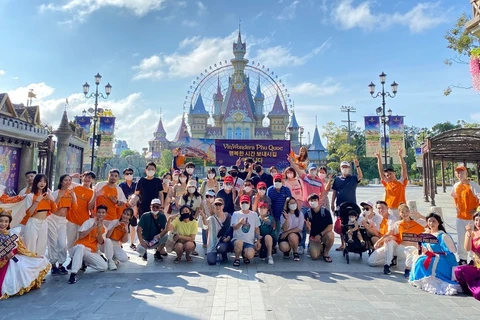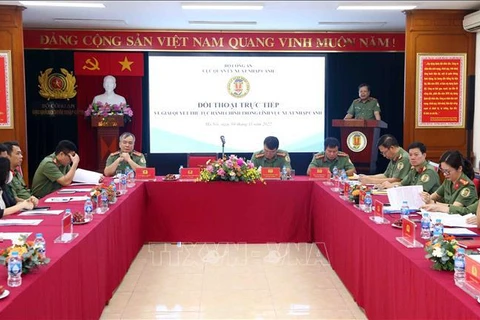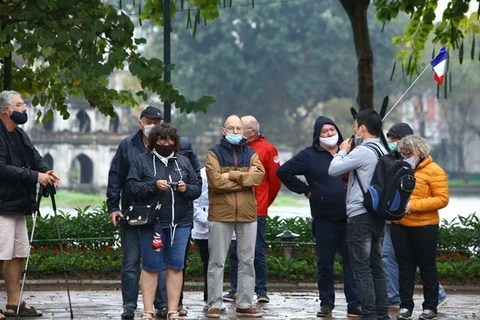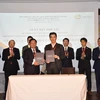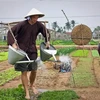
Hanoi (VNA)
– The Government’s proposal to loosen the visa policy to foreigners is expected to untangle a knot in the tourism sector, facilitating international arrivals and enhancing the competitiveness of Vietnamese tourism, according to insiders.
Under the proposal, which has been submitted to the National Assembly, the validity of e-visas will be extended to 90 days from the current 30 days, with single and multiple entries, and it will be granted to citizens of all countries and territories, while the duration of temporary residence at the border gate for people entering the country under the visa exemption categories will also be increased from 15 days to 45 days.
Timely solution for breakthrough development
Commenting on the proposal, Chairman of the Vietnam Tourism Association Vu The Binh said that it is a good news for the tourism sector, as although Vietnam reopened the sector earlier than those in the region, the country has offered less open visa policies, which was likely the reason why Vietnam was not able to complete its target in the number of foreign visitors last year.
Binh held that once approved, the new policy will motivate the development of tourism activities, especially international tourism. The policy, coupled with the rich resources, will help the sector recover and develop rapidly, he added.
The official analysed that high-spending tourists, who are the current target group of Vietnam, often stay for at least three weeks, while Vietnam’s current policy allows them to stay for only 15 days, making Vietnam not a good choice for them. The application of e-visa will also help save time for tourists, he said.

Meanwhile, Vice Director of the Vietnam National Administration of Tourism (VNAT) Pham Van Thuy said that loosening visa policy will be a new step forwards for Vietnam to catch up with other countries in the region and the world, giving best conditions for tourists to enter Vietnam.
According to Thuy, the loosened visa policy will meet the demand of travel firms and the whole tourism sector, enabling them to compete with their rivals in the region. “It will create a ‘golden chance’ for the Vietnamese tourism to thrive in the time to come.”
Removing bottlenecks in tourism
Experts asserted that once the Government’s proposal is approved, the tourism sector and the VNAT should be responsible in popularising the new policy to the international community through diverse communication activities.
The World Tourism Organisation (UNWTO) and the World Travel and Tourism Council (WTTC) analysed that favourable visa policy can help increase international arrivals by 5-25% per year.
A study on the impact of visa exemption on five West European countries by the Tourism Advisory Board (TAB) showed that the average number of visitors from these countries to Vietnam has increased nearly 20%. This proves that changes in the visa policy towards more flexibility and openness are always the "key" to attracting international visitors, creating a great breakthrough for tourism.
Since March 15, 2022, when tourism reopened, Vietnam has started to re-apply the bilateral and unilateral visa exemption policy, in which citizens of 12 countries have enjoyed visa exemption under unilateral visa exemption scheme while those of 13 countries, including 11 European countries (instead of only five countries previously), have also enjoyed the exemption under bilateral scheme. Vietnam has also issued e-visas to citizens of about 80 countries.
However, many countries in the region have offered visa exemption to even large number of countries. For example, Singapore has applied the policy to 162 countries, the Philippines 157, and Thailand 65.

On the other hand, Vietnam's most popular visa-free period (15 days) is much shorter than that offered by other countries in ASEAN (usually 30 days or more). Many ASEAN countries have increased the visa exemption period from 30 days to 45 days, and even 90 days to facilitate the number of international tourists. Vietnam’s short visa exemption period is not suitable to the long-term travel needs of international visitors, especially those from far-away countries such as people in Europe.
The extension of the visa-free duration is also expected to help Vietnam attract visitors who enter Vietnam for trade and investment purposes in combination with tourism. Travel firms also proposed visa exemption for MICE or golf tourists.
In the recently released White Book on 2022-2023 period, which is themed working toward a green economy and sustainable development and fully implementing the EVFTA and completing the ratification of EVIPA, the EuroCham clarified that the entry visa policy is one of the levers that have the greatest impact on the flow of international tourists. After the COVID-19 pandemic, many countries are seeking ways to expand the scope of visa exemption. This will help improve competitiveness, attract direct investment and increase the flow of international tourists, thereby increasing foreign currency revenue and creating more jobs, it said.
Therefore, the Government’s proposal is highly applauded by the tourism sector as an effective measure to boost its growth./.
